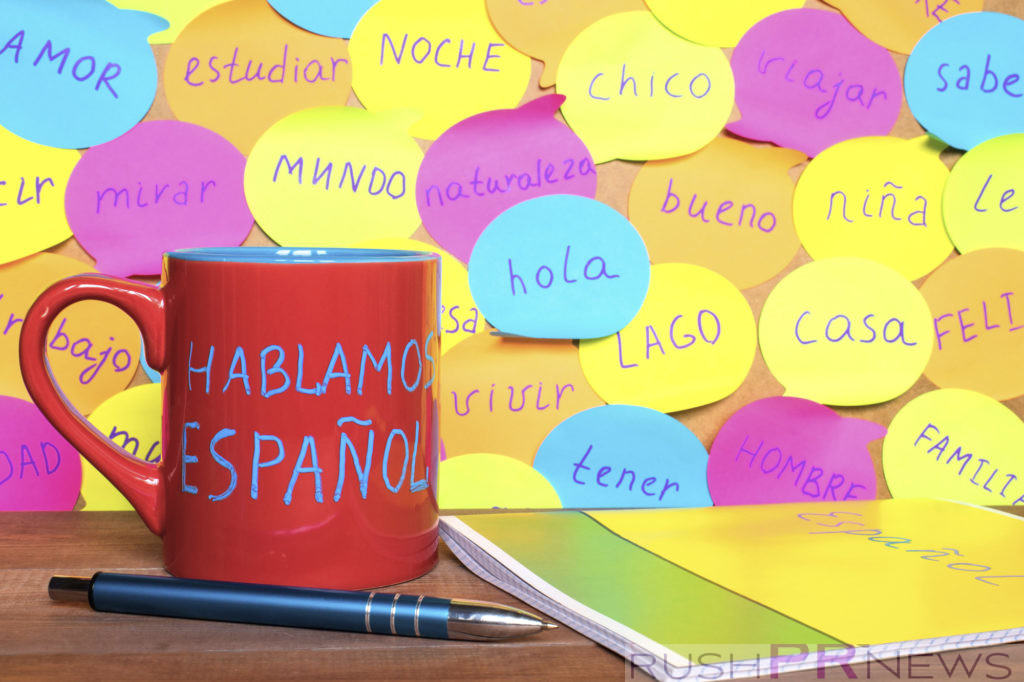400 million people speak Spanish, second to only the Chinese language in popularity around the world. It’s a beautiful language with a rich culture surrounding and supporting it.
It doesn’t matter if you’re a teenager in school or someone looking for a new activity during retirement. Learning a new language is a great way to expand your mind and connect with other parts of the world.
It’s not easy, however, and it does take time and effort to learn Spanish.
But there are ways to make it easier on yourself. We’ve collected different tips that aid language-learners of all levels. If you’re looking to have success in Spanish, keep reading.
1. Write Down What You Don’t Know
When you listen to your teacher in class, a lot of information comes at you at a rapid pace. A lot of the time, you won’t recognize every little thing your teacher says to you.
This is a normal part of learning a new language. But don’t let those unknown phrases pass you by in a blur. Write them down so you have the chance to study them later.
Don’t worry if you write down a lot from one class to another. This method is meant to help in Spanish learning and it’s up to you to make use of it. In fact, the more you write down, the better.
Tackle these difficult phrases and vocabulary words head on. One day, you won’t need to write down as much anymore as you strengthen your comprehension skills.
2. Make Flash Cards
No amount of careful study makes learning a whole new language easy. That’s not how our brains work.
This is where flash cards come in to play. Flash cards are versatile tools allowing you to practice many different study materials.
Most of us think of flash cards as being a vocabulary-studying tool, but they’re capable of more than that. Use them as study drills for different phrases, article practice, preposition usage, and more.
If you’re wondering how to study for a test, this is one of the best ways to do it.
3. Seek Out Other Learning Resources
Going to class is a brilliant resource in and of itself, but the internet is a vast place full of information. A quick search will give you a wide range of different free programs and study materials which will support what you learn in the classroom.
These resources are no substitute for true guided learning, but they make for a great tool to use alongside the classroom. Take some time to learn more about these helpful resources, as they will be your best friends in learning Spanish.
4. Refresh Old Vocabulary
As you continue to study, the Spanish vocabulary you know continues to grow. The first words you learn are the easiest while the ones you learn later will take more time.
It’ll be tempting to ignore those first words in your studies. You’ve learned those words so long ago, why would you need to keep up with them?
Keeping old vocabulary fresh in your mind is more helpful than you might think. Even if you recognize the word and use it often, it’s still good to continue rotating it into your studies every once in a while. There’s no such thing as over-studying, after all.
5. Keep Focused in Class
This seems a given, but it’s worth mentioning due to the importance of its message. It’s easy to get in Spanish class and then spend the entire time chatting to friends and enjoying yourself.
If you do this all in Spanish, that’s great practice. But if you’re using your native language, then it is not helpful at all.
It’s best to use class time to focus on your studies and meet up later with your friends to catch up. Your teacher is giving you all the right tools and material to do great in your Spanish studies. Don’t waste the invaluable resource that is the classroom.
6. Push Your Limits Everyday
Learning Spanish takes time and dedication. It’s not something you can learn in a single day or even a week. It’s a constant thing you’ll need to work on every day.
Because of this, it’s sometimes tempting to take the easy route. You’ll think you’ll do the bare minimum and that’s enough for the day.
This will keep you steady in the things you learned. But if you want to excel in your studies, you’ll need to do more than that on a regular basis. It’s good to take breaks but you want to be vigilant to get the most out of your studies.
It’s good to tackle your studies in a cycle. One day, you’ll do your homework and practice a few flash cards and that’s it. The next day, do all this, plus something extra. Something that pushes you and takes extra time and effort to complete.
This extra effort will boost your learning in many beneficial ways.
7. Immerse Yourself in the Language
If you’re looking for the fastest and most efficient way to learn a language, then this is the key to success. Immersing yourself in a language is how we learned our first words as a child, and it’s that principle which makes this work when we’re older.
Where possible, substitute everything in Spanish.
Want to watch a movie? Watch it in Spanish. Your favorite author came out with a new book? Get the Spanish translation.
The more you expose yourself to the language, the more you’ll absorb and the quicker you’ll learn.
Success in Spanish is All About Effort
As with most things in life, your success in Spanish depends on the amount of effort you put in.
If you’re serious and put in the time to study every day, you’ll have no problems with that upcoming test. You’ll find you no longer struggle as much to remember those difficult Spanish vocabulary words and grammar.
So dive right in and use these tips to your learning advantage.
Keeping healthy is another important step in learning something new. Check out this unique workout routine to keep both your body and your brain going strong.




